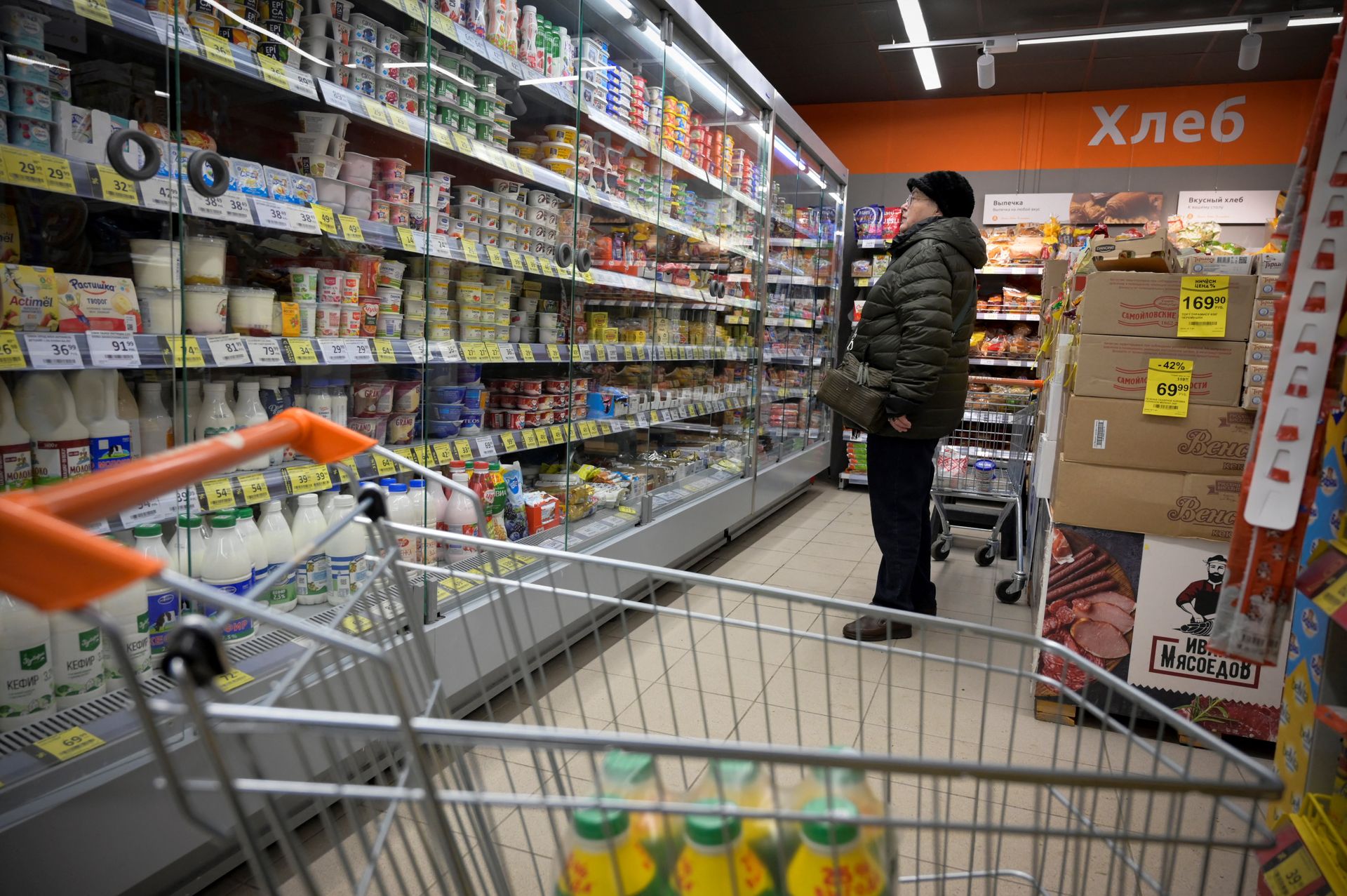'Last chance' — Witkoff effort in Russia unlikely to change Trump’s course, analysts say

U.S. President Donald Trump invites U.S. Special Envoy to the Middle East Steve Witkoff in Washington, D.C., U.S. on May 28, 2025. (Andrew Harnik / Getty Images)
As U.S. President Donald Trump trades barbs with Russian officials amid growing tensions, he has announced he may send his special envoy Steve Witkoff to Russia this week.
The visit, which Russia has yet to confirm, would likely take place on Aug. 6 or 7 — immediately before a deadline Trump imposed on Moscow to reach a peace deal with Ukraine or suffer secondary tariffs targeting its oil exports.
"I think this is an effort to give (Russian President Vladimir) Putin one last chance" before the U.S. imposes harsher measures, Kurt Volker, a former U.S. special representative for Ukraine negotiations, told the Kyiv Independent.
"I think Putin may see whether there’s any angle that he could use to stretch negotiations out, drag them along as he has always done. But I don’t think (the visit) will actually change anything," Volker added. "I think the course is already set."
Witkoff, a close ally of Trump who had no diplomatic experience prior to his role in the current administration, previously visited Moscow in April for talks with Putin.
He is widely viewed as friendlier toward Russia than many others in the Trump administration and has been criticized in Ukraine and abroad for repeating Russian propaganda narratives. Last month, he reportedly pushed for the U.S. to lift energy sanctions on Russia.

Trump’s attitude toward Moscow has significantly shifted since Witkoff’s last visit, however, as he has failed to broker a peace deal between Russia and Ukraine.
As Russia ramps up aerial attacks on Ukraine’s major cities and civilian casualties rise, Trump has taken a harder line towards Russia and shortened his deadline for a peace deal from 50 days to ten.
Following escalating rhetoric from Russian officials, Trump announced Aug. 2 that he was moving two nuclear submarines to the region.
"This is a very big change," Oleksandr Kraiev, an expert on North American policy at the foreign policy think tank Ukrainian Prism, told the Kyiv Independent.
"Previously, nuclear blackmail was exclusively their weapon, only the Russians used it. Now suddenly, it turns out that the president of the United States can also use the same tools."
“He [Trump] understands that Putin is not a partner to reach an agreement with and resolve the Ukrainian issue.”
While Trump campaigned on a promise to end the war in Ukraine as soon as he took office, he has become frustrated in recent weeks by Russia’s refusal to compromise on its maximalist demands. Russia’s goals go beyond full capitulation by Kyiv, and include handing over territory with major cities that have yet to be captured by Russia.
While Kraiev agreed that Russia is likely to try to convince Trump that they are ready for negotiations to delay any new measures taken by the U.S. against Russia, he predicted that the two sides are unlikely to find much common ground in a meeting this week.
"I do not expect any breakthroughs, I do not expect anything extraordinary. It simply cannot happen, given Moscow’s extreme position," Kraiev said.
According to Oleksandr Merezhko, a top MP from President Volodymyr Zelensky's party, Trump’s latest shift is a "more realistic" understanding of Putin’s position.
"He understands that Putin is not a partner to reach an agreement with and resolve the Ukrainian issue," Merezhko said.

The only specific measure Trump has threatened has been imposing secondary tariffs on Russia's trading partners, though he has also threatened unspecified sanctions. Trump himself voiced doubt about how effective these potential next sanctions might be.
"There'll be sanctions, but they (Russians) seem to be pretty good at avoiding sanctions," Trump said on Aug. 3. "They’re wily characters, and they're pretty good at avoiding sanctions, so we’ll see what happens."
But even if the deadline comes and passes, Merezhko expressed skepticism about how far Trump is willing to act on his threats to punish Russia.
"If we are talking about sanctions, then we must remember the ultimate goal: to deprive the Russian economy of the benefits and profit from the sale of Russian oil and gas. Because it feeds the Russian war machine," Merezhko said.
"Is Trump personally ready for the sanctions that reach this goal? I doubt it."
Russia is already the world’s most sanctioned country, as Ukraine’s allies have layered on rounds of sanctions in response to Russia’s full-scale invasion in 2022.
While Russia’s economy has proved more resilient than many expected, more than three years of sanctions have continued to damage the country’s financial stability.











